American Airlines has gone to the Supreme Court to revive legal prospects for its alliance with JetBlue.
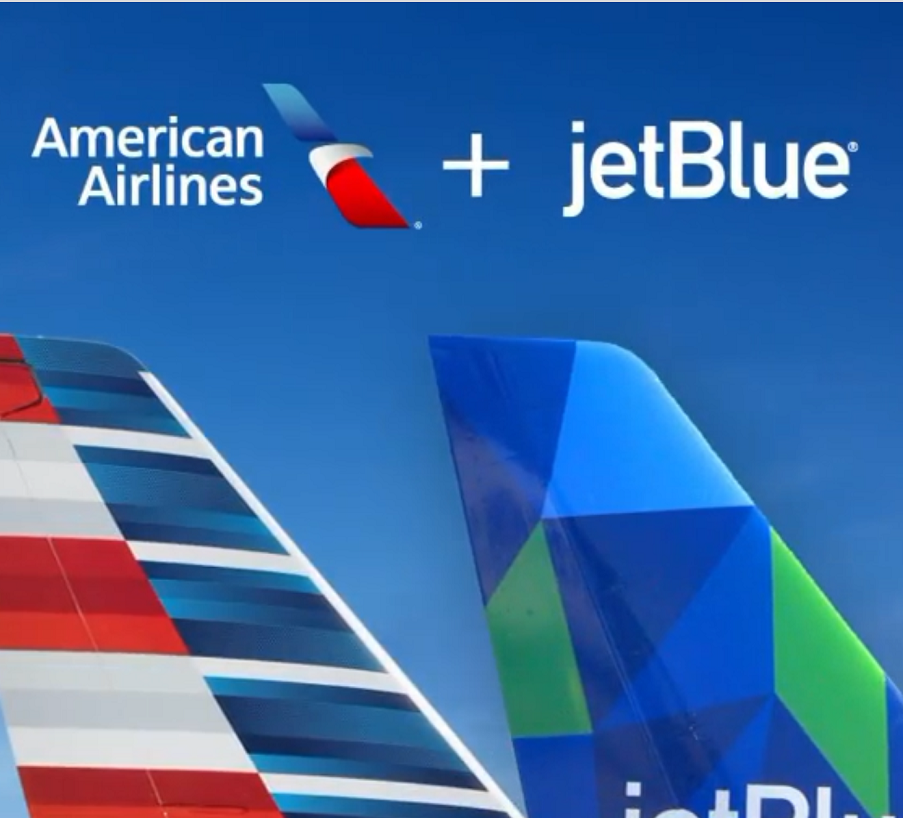
The U.S. Court of Appeals for the First Circuit denied their request to overturn the government’s antitrust victory over the partnership.
- In July 2020, American Airlines and JetBlue Airways announced the “Northeast Alliance” which coordinated flight schedules and shared revenues for routes in and out of New York City and Boston. The Trump administration approved their operating like a single airline in these cities, jointly determining which would fly where and sharing their slots at New York airports.
- They were required to increase seat capacity as a result of the partnership, or face losing slots. That meant lower prices than consumers would otherwise face. And together the two airlines, undersized in the region (especially New York) on their own, would be big enough to mount real competition to Delta and United.
- The Biden administration sued to break up the partnership under antitrust rules. American and JetBlue no longer competed with each other even if they competed against Delta and United. Their position was that dividing markets with fewer competitors was per se illegal.

After a month-long bench trial, U.S. District Judge Leo Sorokin of the District Court of Massachusetts ruled in May 2023 that the NEA violated antitrust law, though suggested a less intensive partnership akin to American’s ‘West Coast Alliance’ with Alaska would have been fine. The judge’s strongest argument was that pro-consumer benefits could have been achieved with less restriction on competition. But it’s precisely consumer benefit versus harm – the traditional antitrust standard – which was overall de-emphasized in his ruling.
JetBlue left it at that, preferring to focus on getting approval for their acquisition of Spirit Airlines. Ironically,
- JetBlue really only needed Spirit in the context of their partnership with American Airlines, since the American deal gave them more slots to fly in New York and therefore the Spirit planes and pilots were a way to grow in both New York and Boston. Without the American deal, the Spirit one made little sense.
- The government challenged the Spirit acquisition and won, as Spirit itself went into a tailspin and JetBlue struggled. Spirit is poised to emerge from bankruptcy not much stronger than when it entered.
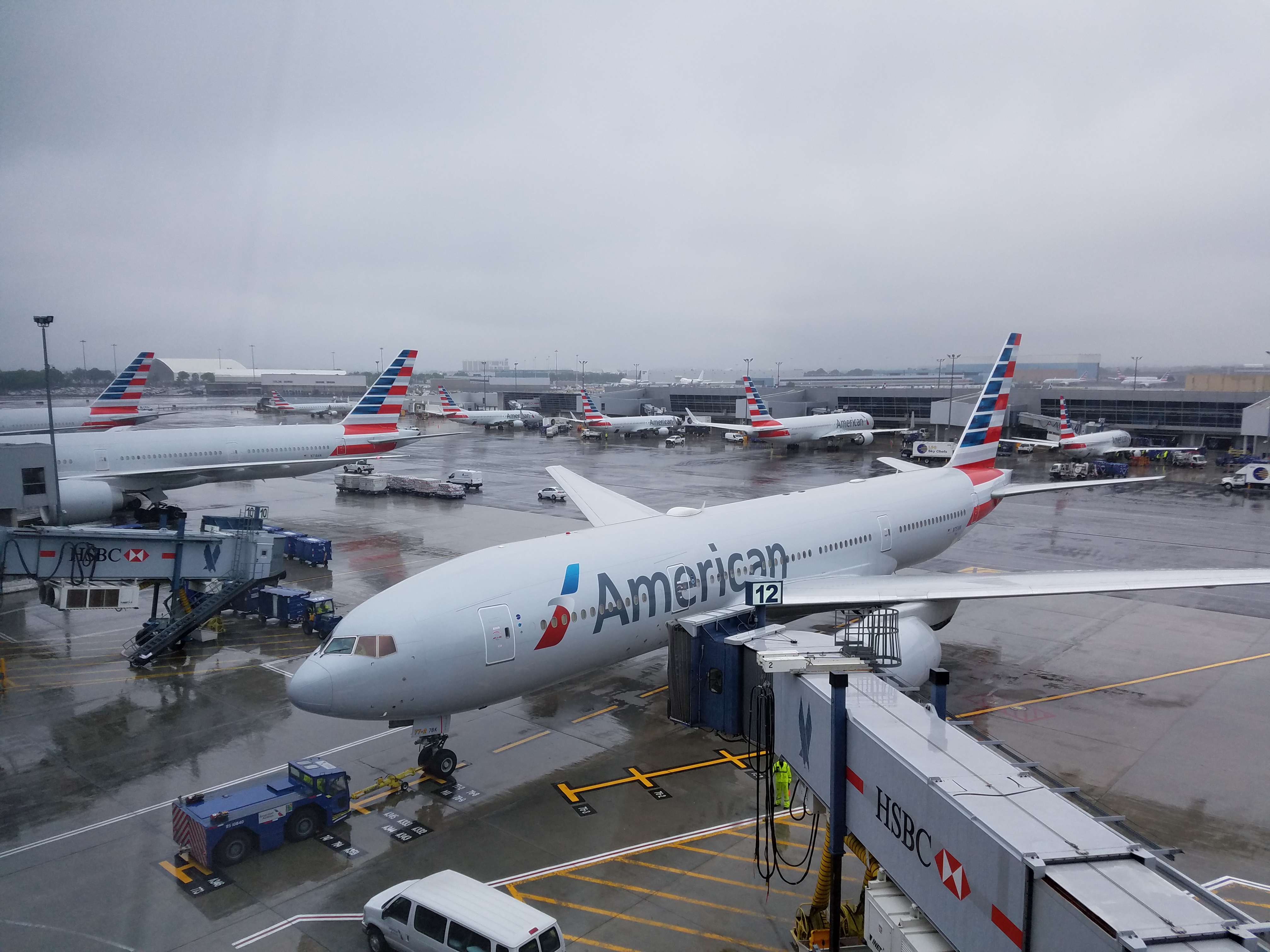
American Airlines, however, appealed Sorokin’s decision even without JetBlue – because the ruling would restrain it from pursuing any similar collaborative arrangements in the future, no matter the consumer benefits. However the federal appeals court upheld the ruling, finding that there was no clear error in the district court’s findings.
American’s Supreme Court appeal contends – quite correctly – that lower courts misapplied antitrust law and failed to properly account for the NEA’s consumer benefits. The First Circuit and trial court misinterpreted the Sherman Act’s rule of reason by condemning the NEA without evidence of actual harm to consumers. During the NEA’s operation, the number of flights, routes, and seats in the Northeast increased, and there was no indication of price increases attributable to the alliance
There was no broad-based fare increase, reduced output, or reduction in quality that you’d expect with an antitrust violation. Instead, the courts treated any coordination between competitors as illegal. That’s a departure from traditional antitrust analysis and Supreme Court precedent. American cites decisions emphasizing that joint ventures can be efficient and even necessary to “do something more cheaply or better” than firms could alone, and should not be condemned “too reflexively” (e.g. Texaco v. Dagher (2006), where the Supreme Court held that a complete joint venture between two competitors – that ended competition between them – had to be analyzed under the full rule of reason rather than treated as per se illegal).
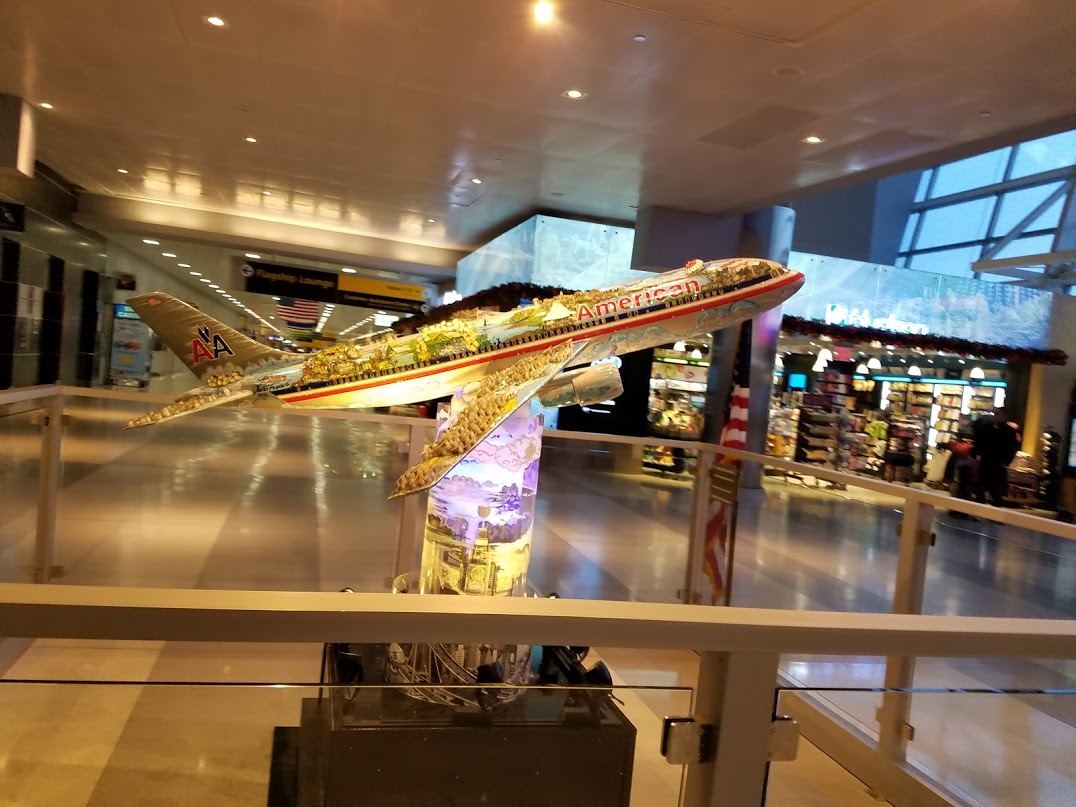
In total, the Northeast Alliance,
- Offered consumers new flights
- And more seats through use of larger aircraft
- At lower prices than there would have otherwise been
- As well as more benefits through their frequent flyer partnership
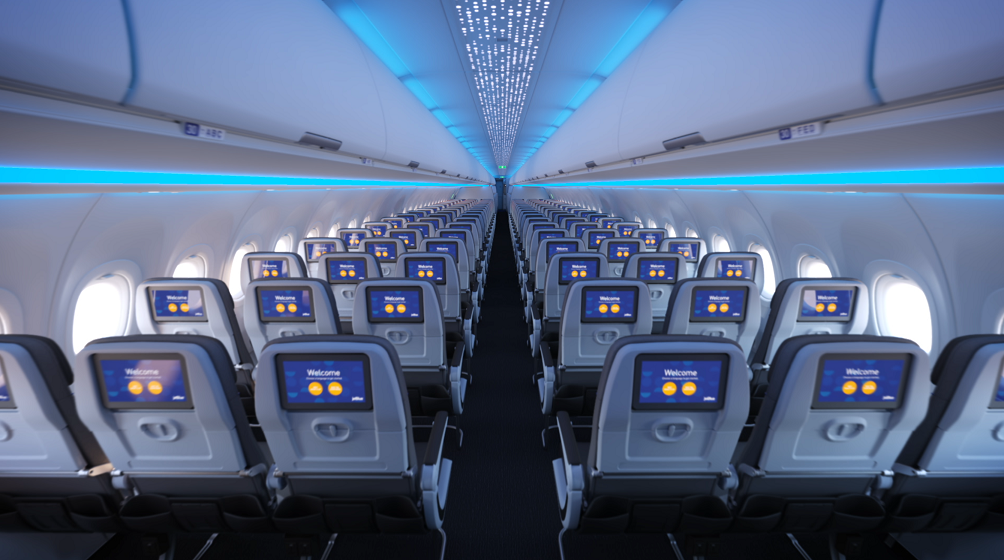
It was pro-competitive overall, precisely by working together and deciding jointly how to allocate limited resources like slots to greatest benefit. And by reversing course on the Trump administration’s prior approval of the arrangement, the Biden administration undermined the rule of law and created an uncertain business environment. American argues it was improper for a court to override DOT’s expert judgment without clear evidence of harm (though DOT has authority to provide antitrust immunity between U.S. and foreign airlines they lack that authority between domestic carriers).
The odds that the Supreme Court will take any given case are low. American Airlines seeks to frame the issue as a broad one for antitrust rather than a single narrow dispute, and suggests that there is a ‘circuit split’ in how the fifth circuit applied Supreme Court precedent (suggesting that the 2nd, 9th, and 11th Circuits would not condemn a collaboration absent evidence of higher prices or reduced output). If the Supreme Court perceives a genuine split in how lower courts apply the rule of reason to collaborations, that could increase the chances of review. However, lower courts have not diverged specifically upholding some airline alliances but not others. It’s unclear whether there will be 4 votes to take the case though votes to win might actually be easier.
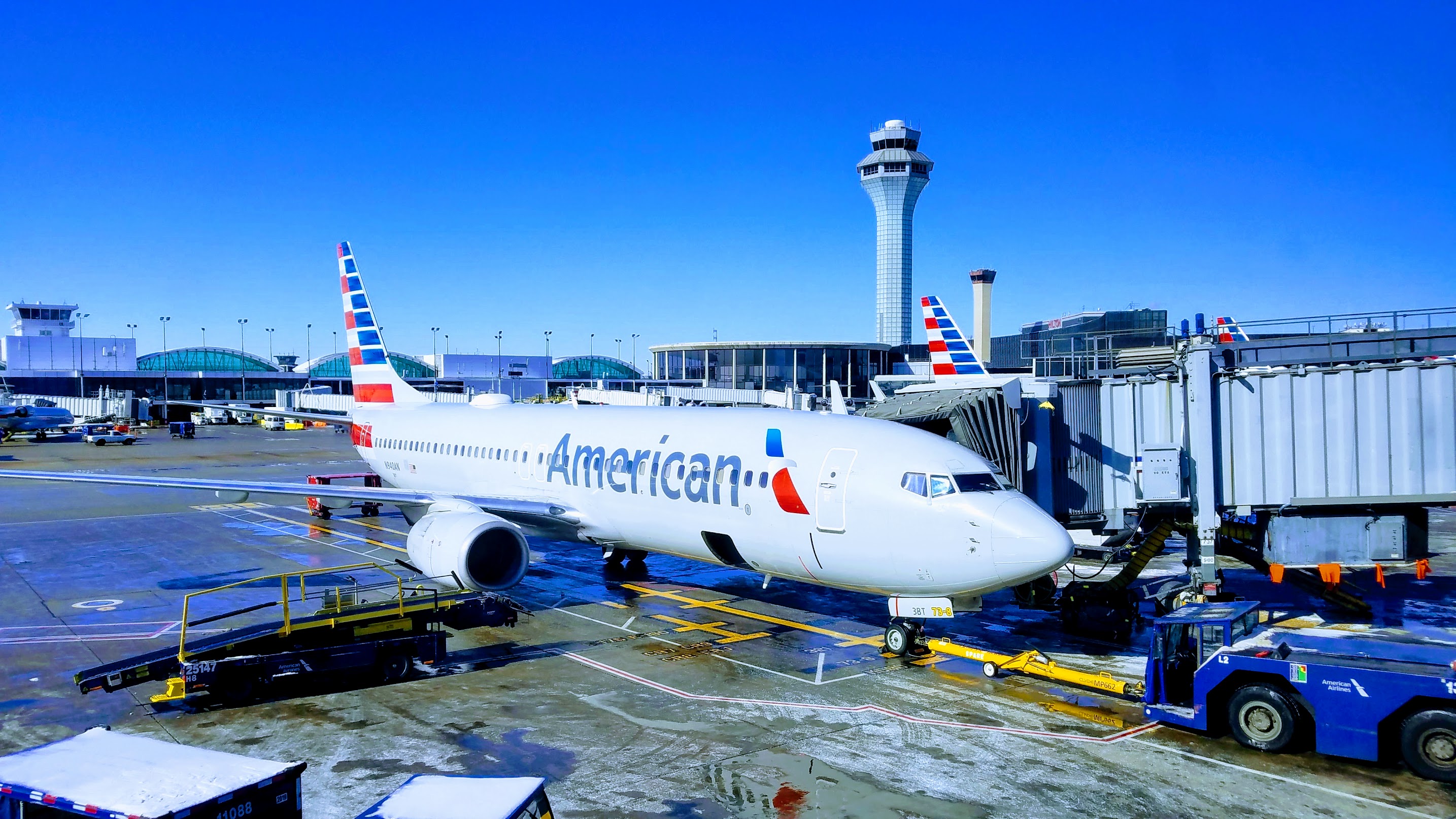
However, since the last Trump administration approved this combination and it would be an opportunity to break from the Biden administration, if the case made it to the Supreme Court the Department of Justice might not defend against it (even though Trump’s DOJ has signaled that they would take a strong antitrust position generally). The Trump administration ‘cut a deal’ with the airlines to ensure the Northeast Alliance was pro-consumer and pro-competitive. Meanwhile, if the Court takes the case, it has overall been broadly friendly to business in its antitrust analysis.
It’s a long shot for the Court to take the case, but if they do American stands a good chance. And the fact remains that American, as a competitor in New York, considers itself ‘too big to quit, too small to win’ while JetBlue is desperately seeking partners (including domestic ones). Lifting restrictions on these could be great for customers.


I’m going to go out on a limb here and predict that this particular Supreme Court (6-3) will do anything and everything to benefit the wealthy, at the expense of everyone else. Prove me wrong.
Four justices, not five, have to vote to take a case.
@Alex — Nice knowledge of Supreme Court ‘rules’. Regardless, the pro-business, anti-consumer ‘side’ has 6 members. So, getting 4 votes should be easy for them–this will likely happen.
We are entering a new era of trusts, mergers and acquisitions. This usually does not end well for those who benefit from greater competition in the market (namely, consumers, passengers).
That said, if this particular plan means I can access Admirals Clubs while flying jetBlue…I’m down.
@Alex — And maybe Gary was thinking ahead, like to the actual votes on the matter, in which 5 is majority. He probably just got tripped up a little. No matter: The airlines are going to win this.
Supreme Court probably won’t have time to take this case up. They have a lot going on these days.
They don’t have time to look at JetBlue/American trying to take over airports up and down the east coast.
If American Airlines worked as hard at flying their own routes out of New York and Los Angeles as they do at finding partners to fly their routes for them they might be successful.
James, excellent response!
@Kevin — They got all the time in the world. Plus, they don’t even have to really argue about the law anymore. It’s just raw numbers (6-3). The mysticism of the court is dead. It’s inherently political now. And I think pro-business interests win whatever cases they bring to them.
@James @Rob — What are you guys smoking? American is doing just fine in those markets. It’s PHL, CLT, and elsewhere that they really need to step it up. Have you not tried their Flagship lounges, like Chelsea and Soho at JFK T8? Honestly, those as good as Polaris or Delta One. Sure, the interior cabins are getting older, and we do talk shit about that all the time on here. But, JetBlue doesn’t even have lounges at JFK T5. I just don’t think your criticism is directed at the right stuff.
The reality is Delta has JFK.
United has Newark.
If either of those 2 aquired Jetblue, it would be a monopoly.
AA/JETBLUE, will over more competion.
Truth is, AA HELPED CREATE JETBLUE. IT WAS ALWAYS IN THE PLANS FOR THOSE 2 TO MERGE.
It seems to that if the Supreme Court allows this arrangement it would be a decidedly pro worker decision. Without this arrangement Jet Blue continues to get smaller and reduce headcount. Possibly AA does the same? If the Supremes allow this arrangement they most likely save Jet Blue and preserve thousands of jobs.
“We want less choice!” said nobody ever.
“We want to be forced to fly on the worse of the US3 airlines more times than before!” said no one ever.
The Supreme Court has more important things to do (like supporting autocracy) than take up this squabble, so this will probably be a nothing burger.
@David P — Your take is that allowing more mergers is ‘pro-worker’? Not at all. What often happens is that the combined company lays off workers because there is redundancy. Apparently, some of you have never experienced this in the workplace yet. *facepalm*
Having successfully written a writ of certiorari to the Supreme Court (that’s the brief you write to convince the Court to take your case), I like AA’s chances here. This case is important, and was wrongly decided. Antitrust law basically exists to prevent monopolies, and not to allow the courts to substitute their judgment on business combinations (which are often helpful to the economy) to the private sector’s. As you noted, there is nothing harmful to the public about this combination — quite the opposite. It was actually
pro-competitive! Biden’s reversal of the Trump permission is also troubling. The odds are always against you in getting your writ accepted, but this one has an excellent chance.
the basis of US law is that you have to be harmed in order to be awarded relief.
B6 doesn’t want to be a part of the NEA – at least not now – so the Supreme Court will not make a preemptive ruling just so AA can potentially launch another agreement in the future.